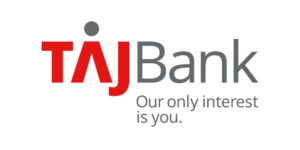Bitcoin and Islamic Finance, Is Bitcoin Halal or Haram, an Islamic law perspective.
Is Bitcoin Halal or Haram from Islamic law perspective is a question that has been troubling me from many days. Recently I read “Shariah Analysis of Bitcoin, Cryptocurrency, and Blockchain” by Mufti Muhammad Abu Bakar, who is a Shariah advisor and auditor at Blossom Finance in Indonesia. I took some notes on Bitcoin and Islamic Finance and made a further research on it which you may find interesting.
Also tread my article on Islamic Fintech
What is Cryptocurrency?
Cryptocurrency, a term derived from “crypto” (referring to encryption or cryptography) and “currency” (denoting its function as a medium of exchange among users), is a digital representation of value. Unlike traditional currencies issued by central banks or public authorities, cryptocurrencies are not necessarily tied to fiat money but are widely accepted for payments and can be electronically transferred, stored, or traded. Prominent examples include Bitcoin, Litecoin, Stellar, and even non-cryptocurrencies like in-game credits in massive multiplayer games like World of Warcraft, advertiser-issued credits, and various other digital stored value systems.

What is Bitcoin?
Bitcoin is a decentralized digital currency that operates on a peer-to-peer network without any intermediary or central authority. Bitcoin transactions are recorded in a public ledger called the blockchain, which ensures transparency and security.Bitcoin has attracted the attention of various stakeholders, including investors, regulators, and scholars, due to its innovative features and potential benefits.However, Bitcoin also poses some challenges and risks, such as volatility, hacking, fraud, and illicit activities. Therefore, it is important to examine the legal and ethical implications of Bitcoin from different perspectives, especially from the Islamic perspective.
Shariah Principles and Objectives
Shariah is the Islamic law that governs all aspects of life for Muslims, based on the primary sources of the Quran and the Sunnah (the teachings and practices of Prophet Muhammad).Shariah aims to achieve five main objectives (maqasid al-shariah), which are the protection of religion, life, intellect, lineage, and wealth. Shariah also prohibits certain activities that are harmful to individuals or society, such as riba (interest), gharar (uncertainty), maysir (gambling), and zulm (injustice). Shariah also encourages economic activities that are beneficial, ethical, and socially responsible, such as trade, charity, and cooperation.
Key Characteristics of Bitcoin Advocated by Supporters
- Decentralization and Limited Supply: Bitcoin’s decentralized nature ensures freedom from government control or ownership. With a finite supply of 21 million bitcoins, no governing authority can manipulate its value artificially through currency production adjustments. Bitcoin’s value is predominantly governed by natural supply and demand economics.
- Blockchain Transparency: The blockchain serves as an unalterable public ledger, recording all confirmed transactions within the Bitcoin system. It plays a crucial role in maintaining order, transparency, and preventing counterfeiting.
- Efficient Digital Payments: Bitcoin enables swift and cost-effective digital payments to individuals and merchants. This efficiency is achieved by bypassing banks and intermediaries in transaction processing.
- Pseudonymous Transactions: While all Bitcoin transaction details are publicly stored, the identities of users involved remain relatively anonymous. Although Bitcoin doesn’t provide complete anonymity like cash, it offers a significantly more private experience compared to online payments or transactions using debit or credit cards.
Bitcoin Transactions: How They Work
In the world of Bitcoin, you can send bitcoins to anyone’s address, but only the person with the private key can spend them. Bitcoin addresses are public, but they don’t reveal the owner’s identity, making them pseudonymous.
Here’s how a Bitcoin transaction happens: Imagine you want to buy cupcakes from Cups and Cakes Bakery in San Francisco. You need their public Bitcoin address. You use your wallet to send the payment, and it gets broadcasted to the Bitcoin network.
The network members check if your transaction is valid and if you have enough funds. If everything checks out, a miner includes your transaction in a block. This block then spreads across the network and becomes part of the global blockchain. Now, the bitcoins belong to Cups and Cakes Bakery’s wallet, identified by the address you sent the payment to.
Bitcoin from a Shariah Perspective
Bitcoin can be viewed from different angles in relation to Shariah principles and objectives, such as its nature, its usage, its value, its governance, and its impact. The nature of Bitcoin can be analyzed in terms of its definition, its classification, and its ownership.
Definition of Bitcoin
Bitcoin can be defined as a digital commodity that has some characteristics of money, such as medium of exchange, unit of account, and store of value.
Classification of Bitcoin, Islamic perspective:
Bitcoin can be classified as a fungible asset (mal) that is subject to zakat (obligatory charity) and inheritance rules.
The Quran and the teachings of Prophet Muhammad (peace be upon him) do not provide a precise definition of “mal.” Consequently, scholars and jurists have differing opinions regarding its interpretation.
Some scholars assert that “mal” exclusively refers to tangible or corporeal items. In contrast, others believe that “mal” encompasses both tangible and intangible assets, as long as the item possesses both value and desirability. Shaykh Zuhayli (2010) categorizes scholars into two main groups concerning this matter: the Hanafi scholars and the majority of scholars.
According to the majority of scholars, which includes those from the Maliki, Shafi’i, and Hanbali schools of thought, the definition of “mal” is not restricted to tangible objects alone. They assert that “mal” encompasses intangible assets, benefits, and rights, albeit subject to specific conditions and criteria.
According to hanafi scholars,, there are two attributes to consider something as mal:
- It would be desirable for human being.
- It would be capable to be stored for the time of necessity.
Ownership and usage of Bitcoin:
Bitcoin can be owned by anyone who possesses the private key that controls the access to the bitcoins in a wallet address.
The usage of Bitcoin can be evaluated in terms of its permissibility, its conditions, and its limitations.
Is Bitcoin Halal or haram- Bitcoin Fatwa in Islamic Finance
Hanafi scholars on Bitcoin
Hanafi scholars have different opinions on the nature and classification of Bitcoin, depending on whether they consider it as money, commodity, or something else.
- Some Hanafi scholars, such as Mufti Muhammad Abu Bakar, regard Bitcoin as a valid form of money that can be used for transactions, as long as it meets the criteria of being widely accepted, having a stable value, and being easily divisible and transferable.
- Other Hanafi scholars, such as Mufti Faraz Adam, view Bitcoin as a digital commodity that can be traded, but not as a currency that can be used for payments, due to its high volatility, lack of intrinsic value, and uncertain legal status.
- A third group of Hanafi scholars, such as Mufti Taqi Usmani, do not recognize Bitcoin (till now) as either money or commodity, but rather as a token or voucher that has no real existence or value, and therefore cannot be used for any Shariah-compliant transactions.
Other Islamic Scholars on Bitcoin
Other scholars from different schools of thought also have diverse opinions on the nature and classification of Bitcoin, based on their own interpretations and methodologies.
- Some scholars, such as Sheikh Assim Al-Hakeem, consider Bitcoin as a form of riba (interest), because it involves exchanging unequal amounts of the same genus (money), and because it involves speculation and uncertainty.
- Other scholars, such as Sheikh Yusuf Talal DeLorenzo, regard Bitcoin as a form of gharar (uncertainty), because it is based on a complex and obscure technology that is prone to hacking, manipulation, and fraud.
- A third group of scholars, such as Sheikh Monzer Kahf, accept Bitcoin as a legitimate innovation that can be used for beneficial purposes, as long as it does not involve any prohibited activities or transactions.
Bitcoin and Shariah : Islamic Perspective on Bitcoin – Scholars Who Say Cryptocurrency is Haram and Those who say its Halal
In general, the scholars and Shariah experts have two different opinions. The first group of scholars is of the view that cryptocurrency is haram, meaning prohibited by Shariah. The other group is of the view that cryptocurrency is in principle halal meaning permissible.
View 1: Cryptocurrency is Haram (Prohibited)
Explanation of the First View
Grand Mufti of Egypt The Grand Mufti of Egypt, Shaykh Shawki Allam, has declared that Bitcoin and cryptocurrency are prohibited. He cites several reasons for this stance, including:
- Use in Illegal Activities: Bitcoin is easily used for illegal activities, making it a preferred choice for those seeking to evade government authorities.
- Intangibility: Bitcoin is intangible and can only be used through the internet.
- Money Laundering and Fraud: Bitcoin facilitates money laundering and fraud due to its pseudonymous nature and decentralized structure.
- Lack of Central Authority: Bitcoin operates without central authority, undermining the control of governments and central banks over the monetary system.
Turkish Government The religious authority of the Turkish government also declares Bitcoin and all cryptocurrencies as prohibited. Their reasoning includes:
- Speculation and Illegality: Cryptocurrencies’ values are highly speculative (subject to excessive gharar) and can easily be used for illegal activities like money laundering.
Fatwa Center of Palestine The Fatwa Center of Palestine also deems Bitcoin and cryptocurrency as haram due to:
- Issuer’s Unknown Identity: The issuer of Bitcoin is unknown, lacking government or central authority backing, which raises concerns about trustworthiness.
- Gambling-Like Nature: Bitcoin mining, involving significant investments with uncertain outcomes, resembles gambling.
- High Speculation: Bitcoin’s lack of control over speculation contributes to its prohibition.
Shaykh Haitam From the UK Scholar Shaykh Haitam from the UK asserts that Bitcoin and cryptocurrencies are prohibited in accordance with Shariah. His key reasons include:
- Absence of Backing: Cryptocurrency is not backed by any tangible asset; it is created from nothing.
- Lack of Legal Tender Status: Cryptocurrency is not legal tender and lacks government or central authority oversight.
- Potential for Misuse: Cryptocurrency can be easily misused for money laundering and illegal activities.
View 2: Cryptocurrency is Permissible in Principle
Explanation of the Second View
Principle of Permissibility: Some scholars believe that, in principle, Bitcoin is permissible. According to the legal maxim “الاباحة المعاملات في الاصل,” everything is permissible in financial and business transactions unless it explicitly contradicts Shariah principles.
Criteria for Money: For cryptocurrency to be considered money, it should meet these criteria:
- Valuable and Accepted: People consider it valuable and accept it for exchange.
- Medium of Exchange: It is widely used as a medium of exchange.
- Measure of Value: It serves as a measure of value.
- Unit of Account: It functions as a unit of account.
Fatwa Center of South African Islamic Seminary: This center believes Bitcoin fulfills these criteria of mal (property) and, therefore, it is permissible for trade. However, they note that government authorities’ approval is necessary for it to be recognized as a currency.
Analysis of the First View: Bitcoin is Haram
Legal Tender Status: Lack of legal tender status doesn’t necessarily make something impermissible as money in Shariah, as acceptability by people is a crucial criterion.
Central Issuer/Authority: Bitcoin’s decentralized structure and cryptographic technology provide trust and security, which some argue is superior to centralized systems.
Volatility and Price Stability: Speculation and price volatility alone do not render something haram; many assets, including fiat currencies, experience high levels of speculation.
Illicit Use: The fact that Bitcoin can be used for illegal purposes doesn’t make it inherently haram; lawful items can be used unlawfully.
In summary, the prohibition of Bitcoin and cryptocurrencies by some scholars is based on various factors, but there are counterarguments challenging these claims. Cryptocurrency’s permissibility remains a subject of debate within the Islamic community.
Reference:
1)https://islamicbankers.files.wordpress.com/2019/02/2017-shariah-analysis-of-bitcoin-cryptocurrency-blockchain.pdf
Follow us in Facebook or Subscribe for our latest updates.
Discover more from Islam Hashtag
Subscribe to get the latest posts sent to your email.





